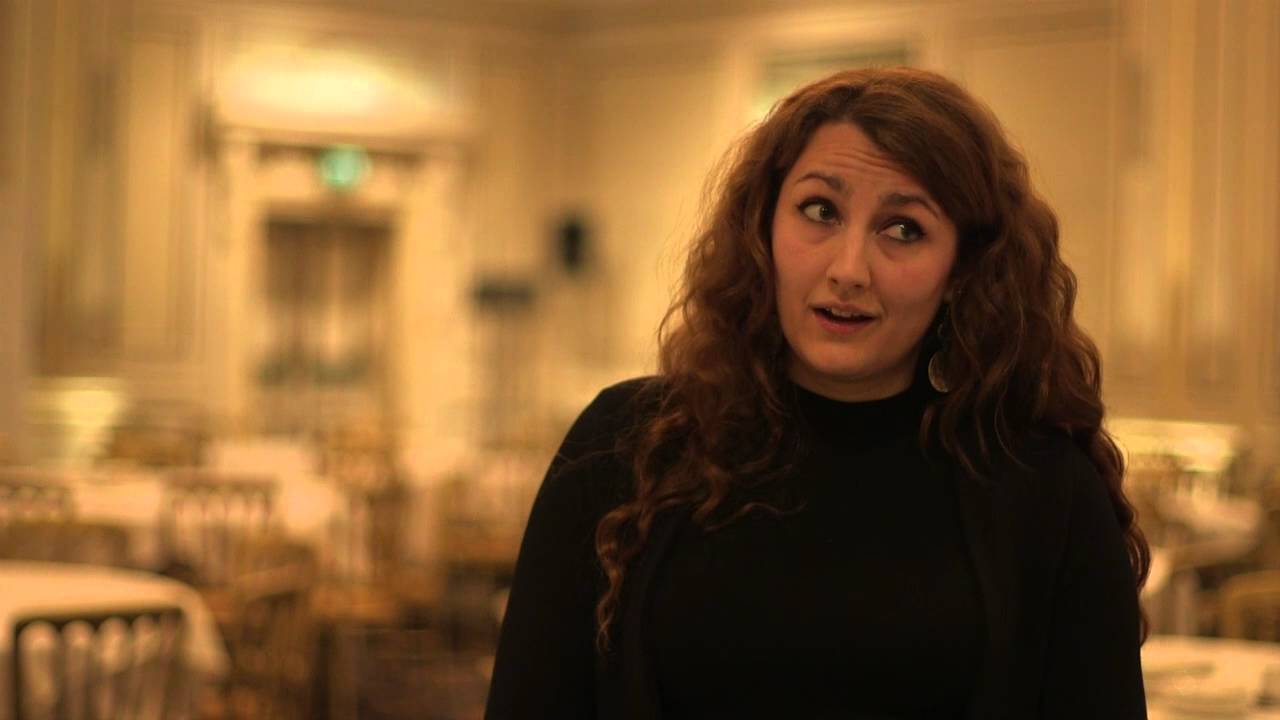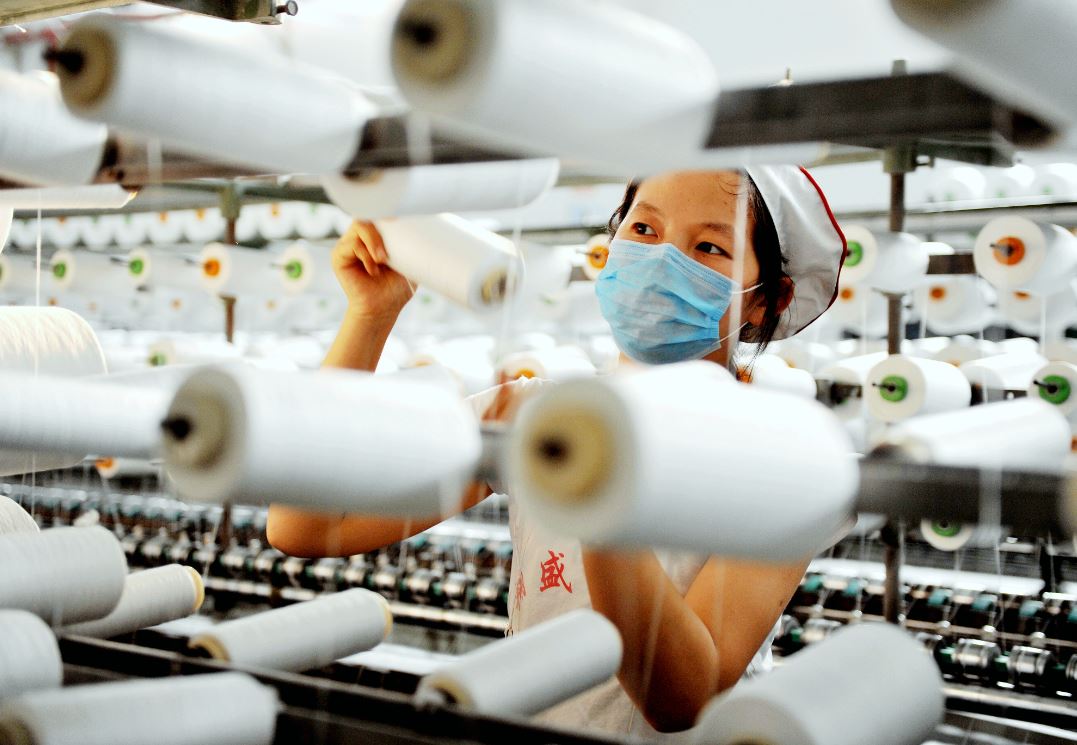Are you someone who has a passion for fabrics, design, and creativity? Have you ever considered a careerin textiles? In this article, we will explore whether is textiles a good career path. While often overshadowed by more popular industries, the textile field offers a diverse range of opportunities and holds immense potential for individuals seeking a unique and fulfilling career path. From textile design to production management, the textile industry combines artistry and technical expertise to shape fashion, lifestyle trends, and sustainable practices.
Is Textile A Good Job?

Is Textile Design a Good Career?
Yes, a career in textiles can be a good job for several reasons. Here are some factors that contribute to textiles being a good career choice:
- Creativity and Artistic Expression -Textiles provide an outlet for creativity and artistic expression. Whether you are designing patterns, selecting fabrics, or experimenting with colors, working in textiles allows you to bring your creative visions to life.
- Diverse Career Opportunities -The textile industry offers a diverse range of career opportunities. From textile design to production management, fashion merchandisingto sustainability consulting, there are various paths to choose from based on your interests and skills.
- Influence on Fashion and Lifestyle -Textiles play a crucial role in the fashion and lifestyle industries. By working in textiles, you have the opportunity to shape trends and styles, and your work can have a direct impact on the way people dress and express themselves.
- Growing Demand for Sustainable Textiles -With increasing environmental awareness, there is a growing demand for sustainable textiles. Professionals who specialize in sustainable practices, such as sourcing organic materials or implementing innovative recycling techniques, are in high demand, offering ample career opportunities in this emerging sector.
- Global Opportunities -The textile industry operates on a global scale, providing opportunities to work with diverse cultures and markets. This global reach allows you to broaden your horizons, gain exposure to different design aesthetics, and collaborate with professionals from around the world.
However, it's important to note that job satisfaction and success in the textile industry can vary depending on individual preferences, skills, and market conditions. It's advisable to research and consider your own interests and goals before making a career decision.
Which Job Is Best In Textile Industry?
The best job in the textile industry can vary depending on individual interests, skills, and career goals. Here are some notable job roles in the textile industry that are highly regarded:

Textile Designer - Career Insights (Careers in Fashion & Design)
- Textile Designer -Textile designers are responsible for creating unique patterns, prints, and designs for fabrics. They work with different materials, colors, and techniques to develop innovative textile designs that can be used in various applications, including fashion, home decor, and upholstery.
- Fashion Designer -Fashion designers create clothing and accessories using textiles. They conceptualize and design garments, considering factors such as aesthetics, functionality, and market trends. Fashion designers may work for fashion brands or establish their own labels.
- Textile Engineer -Textile engineers combine technical knowledge with textile materials to develop and improve textile products. They focus on areas such as fabric development, production processes, quality control, and performance testing. Textile engineers often work on enhancing the durability, functionality, and sustainability of textiles.
- Sustainability Consultant -As sustainability becomes increasingly important in the textile industry, sustainability consultants play a crucial role. They advise and guide companies on sustainable practices, such as eco-friendly sourcing, reducing waste, implementing recycling programs, and adopting ethical manufacturing processes.
- Textile Technologist -Textile technologists are involved in the technical aspects of textile production. They work on developing new materials, improving manufacturing processes, and ensuring quality control. Their expertise lies in understanding the properties and performance of textiles, as well as incorporating new technologies into textile production.
It's important to note that these are just a few examples, and the textile industry offers a wide range of other career paths, including roles in product management, merchandising, research and development, marketing, and more. The best job in the textile industry ultimately depends on your interests, skills, and personal preferences.
What Careers Can You Get Out Of Textiles?

Textile Design Jobs | Types of Textile Design Jobs
The textile industry offers a diverse range of career opportunities across various sectors. Here are some common careers that you can pursue within the field of textiles:
- Sustainability Consultant -With the growing demand for sustainable practices, sustainability consultants provide guidance to companies on adopting environmentally friendly and socially responsible approaches in textile production.
- Textile Researcher -Textile researchers conduct studies and experiments to explore new materials, technologies, and applications within the textile industry. They contribute to advancements in textile science and innovation.
- Textile Marketing Specialist -Textile marketing specialists promote textile products, create marketing campaigns, and develop strategies to reach target markets. They analyze consumer trends and preferences to effectively position textile products in the market.
- Textile Analyst -Textile analysts assess the quality, performance, and compliance of textile products. They conduct testing, analyze data, and ensure that textile products meet industry standards and regulations.
Which Country Is Best For Textile Jobs?

Top Textile Exporting Countries in the World
Several countries around the world have a strong presence in the textile industry and offer favorable opportunities for textile jobs. The choice of the best country for textile jobs can depend on various factors such as market demand, manufacturing capabilities, industry infrastructure, and personal preferences. Here are a few countries known for their prominence in the textile industry:
- China -China has long been a global leader in textile manufacturing. It has a vast textile industry, encompassing all stages of the production process, from fiber production to finished products. The country offers a large labor force, efficient supply chains, and competitive pricing.
- India -India is renowned for its textile heritage and expertise. It has a strong presence in textile manufacturing, including cotton, silk, and handloom textiles. India also excels in traditional craftsmanship and is a hub for textile exports.
- Bangladesh -Bangladesh is a major player in the global textile and apparel industry. It has a well-developed garment manufacturing sector, offering competitive pricing and large-scale production capabilities.
- Vietnam -Vietnam has emerged as a key player in textile and apparel manufacturing, attracting international brands and investors. It offers competitive labor costs, strong manufacturing infrastructure, and favorable trade agreements.
- Turkey -Turkey has a significant textile industry, known for its high-quality textile products and skilled workforce. The country has expertise in a wide range of textiles, including cotton, wool, and technical textiles.
- Italy -Italy is renowned for its fashion and textile industry, particularly in luxury textiles. It has a strong focus on design, craftsmanship, and high-quality production, making it an attractive destination for textile jobs in the luxury and high-end market segments.
- United States -The United States has a diverse textile industry that spans various sectors, including technical textiles, fashion, and home furnishings. The country emphasizes innovation, sustainability, and advanced manufacturing technologies.
These countries are just a few examples, and there are many other regions that have a significant presence in the textile industry. It's important to consider factors such as market dynamics, career opportunities, work-life balance, and personal preferences when determining the best country for textile jobs.
Which Country Is No. 1 In Textile?
China is at the very top of the list of places that make textiles. It is the best place in the world to sell clothes. China sends a lot of clothing and items to many different countries all over the world. In 2020, China's exports were worth well over $250 billion, and they are still doing well. China is one of the most popular places to buy textiles from because it has cheap production costs, good quality raw materials, a modern industrial infrastructure, and high-techmachinery.
China's textile businessmakes a lot of different kinds of fabrics that fashion brands want. The production of cotton, silk, wool, knitted, chemical, printed, and other fabrics fall into these groups. China's textile businessexports more than half of all textiles that are sold on the world market.
What Is The Highest Paying Job Textile Workers?
The highest-paying jobs in the textile industry can vary depending on factors such as job role, experience, location, and the specific sector within textiles. Here are a few examples of high-paying positions within the textile industry:
- Textile Product Development Manager -Product development managers in the textile industry are responsible for overseeing the creation and improvement of textile products. They work closely with design, production, and marketing teams to ensure products meet quality standards, market demands, and profitability goals. Their expertise in product development and management can lead to higher salaries.
- Textile Engineer - Textile engineers combine technical knowledge with textile materials to develop and improve textile products. They focus on areas such as fabric development, production processes, quality control, and performance testing. Their specialized technical skills and expertise can lead to well-compensated positions.
- Textile Research Scientist -Textile research scientists work on innovative research and development projects within the textile industry. They explore new materials, technologies, and applications that can improve textile performance, sustainability, and functionality. Research scientists often have advanced degrees and specialized knowledge, which can command higher salaries.
- Textile Design Director -Design directors in the textile industry oversee the creative direction and design strategies for textile products. They collaborate with design teams, analyze market trends, and ensure the development of compelling and innovative designs. Design directors with extensive experience and a successful track record in the industry can earn higher salaries.
- Textile Sales Manager -Sales managers in the textile industry are responsible for leading sales teams, managing key accounts, and driving revenue growth. They develop sales strategies, establish client relationships, and negotiate contracts. Sales managers with strong sales performance and leadershipskills can be well-compensated.
What Are The 3 Types Of Textiles?

What are the 3 types of textiles?
There are numerous types of textiles, each with its own characteristics, applications, and manufacturing processes. However, to provide a general overview, here are three broad categories of textiles:
- Woven Textiles -Woven textiles are created by interlacing two sets of yarns at right angles to each other. The warp yarns run vertically, and the weft yarns run horizontally, forming a stable structure. This interlacing creates various patterns and designs. Woven textiles include fabrics such as cotton, silk, linen, wool, and denim. They are commonly used in apparel, upholstery, home furnishings, and industrial applications.
- Knitted Textiles -Knitted textiles are created by interlocking yarns together to form a flexible and stretchable fabric structure. The loops can be either intermeshed in a flat plane or arranged in tabular form. Knitted textiles include fabrics such as jerseys, rib, and fleece. They are known for their elasticity and are commonly used in activewear, sweaters, socks, and other garments where stretch and comfort are important.
- Non-woven Textiles -Non-woven textiles are created by bonding or felting fibers together without the need for weaving or knitting. These textiles are made directly from fibers or filaments, which are mechanically, chemically, or thermally processed to form a cohesive fabric structure. Non-woven textiles include products such as felt, geotextiles, and disposable medical products. They are often used for filtration, insulation, hygiene products, and geotechnical applications.
What Is The Biggest Textile Company?

How ZARA Changed the Fashion Industry - VisualPolitik EN
Here are a few prominent textile companies that have a significant presence in the industry:
- Inditex -Inditex is a Spanish multinational clothing retailer and one of the world's largest fashion companies. It owns well-known brands such as Zara, Pull&Bear, Massimo Dutti, and Bershka.
- H&M -H&M, based in Sweden, is a global fashion retailer known for its affordable clothing. It operates stores in many countries worldwide and has a significant influence on the fashion and textile industry.
- LVMH -LVMH Moët Hennessy Louis Vuitton is a French luxury goods conglomerate that encompasses multiple luxury brands, including Louis Vuitton, Christian Dior, Givenchy, and Fendi. While LVMH's portfolio extends beyond textiles, it plays a significant role in the luxury fashion sector.
- Fast Retailing -Fast Retailing, headquartered in Japan, is a leading global apparel retailer and owner of the popular brand UNIQLO. The company is known for its focus on functional and affordable clothing.
- Nike -Nike is a renowned American multinational corporation specializing in athletic footwear, apparel, equipment, and accessories. It is one of the world's largest suppliers of athletic shoes and apparel and operates globally.
These are just a few examples of prominent textile and fashion companies, but there are many others that hold significant market share and influence in the industry. The landscape of the textile industry is dynamic, and rankings can change over time due to factors such as market conditions, acquisitions, and mergers. It's always advisable to refer to recent industry reports and updates to get the most up-to-date information on the biggest textile companies.
Why Choose The Textile As Career?

Want to work in the textiles industry? Watch this!
Choosing a career in the textile industry can be a rewarding decision for various reasons. Here are some compelling factors to consider when contemplating a career in textiles:
- Creativity and Artistic Expression -The textile industry offers a unique opportunity for creative individuals to express themselves through design, color, and pattern creation. Textile designers get to bring their artistic visions to life on fabrics that impact various aspects of everyday life, including fashion, home decor, and more.
- Diverse Career Opportunities -The textile industry is vast and encompasses a wide range of roles and specializations. From textile design, production, and marketing to research, sustainability, and engineering, there are diverse career paths to explore based on individual interests and talents.
- Influence on Fashion and Lifestyle -Textiles play a significant role in shaping fashion trends and lifestyles. Working in textiles allows you to be at the forefront of the fashion industry, influencing how people dress and express themselves.
- Sustainability and Innovation -With increasing awareness of environmental issues, the textile industry is making strides toward sustainability and innovation. As a professional in textiles, you can contribute to developing eco-friendly materials and practices, making a positive impact on the planet.
- Global Opportunities -The textile industry operates on a global scale, providing opportunities to work with diverse cultures and markets. This global reach allows you to broaden your horizons, gain exposure to different design aesthetics, and collaborate with professionals from around the world.
- Resilience and Adaptability -Textiles are a fundamental part of human life, and the industry has proven to be resilient over time. Despite economic fluctuations, the demand for textiles remains constant, offering a stable career choice.
- Continuous Learning -The textile industry is continually evolving, with new technologies and materials being developed regularly. This presents opportunities for lifelong learning and professional growth as you stay up-to-date with industry advancements.
- Personal Satisfaction -For those passionate about textiles, working in the industry can be deeply fulfilling. Seeing your designs come to life, contributing to sustainable practices, or making a positive impact on people's lives through textiles can bring a sense of personal satisfaction.
What Do People Working In Textile?

Working in the UK textiles industry: Career perspectives from textile graduates
People working in the textile industry perform a wide range of roles and tasks depending on their specific job functions and areas of expertise. Here are some examples of the work that individuals in the textile industry may undertake:
- Textile Design -Textile designers create and develop patterns, prints, and designs for fabrics used in various applications such as apparel, home furnishings, and upholstery. They use their artistic skills and knowledge of textiles to create visually appealing and marketable designs.
- Production and Manufacturing -Individuals involved in production and manufacturing oversee the processes of textile production, which can include spinning, weaving, knitting, dyeing, printing, and finishing. They ensure that production runs smoothly, adhere to quality control standards, and manage resources efficiently.
- Quality Control and Testing -Quality control professionals in the textile industry are responsible for inspecting and testing fabrics and finished products to ensure they meet the required standards of durability, performance, and appearance. They may conduct physical and chemical tests and analyze data to identify and address any quality issues.
- Textile Engineering -Textile engineers work on developing and improving textile materials, processes, and technologies. They may be involved in research and development, designing machinery and equipment, implementing production techniques, and ensuring product quality and efficiency.
- Supply Chain and Logistics -People working in supply chain and logistics roles manage the movement of raw materials, components, and finished goods within the textile industry. They coordinate sourcing, transportation, warehousing, and distribution activities to ensure smooth operations and timely delivery of products.
- Sales and Marketing -Sales and marketing professionals in the textile industry promote and sell textile products to customers. They identify market trends, develop marketing strategies, build client relationships, negotiate contracts, and contribute to business growth.
- Sustainability and Compliance -With increasing emphasis on sustainability, professionals in sustainability and compliance roles within the textile industry focus on implementing environmentally friendly practices, ensuring compliance with regulations, and developing sustainable sourcing and manufacturing processes.
- Research and Development -Textile researchers and scientists work on exploring new materials, technologies, and applications within the industry. They conduct experiments, analyze data, and contribute to advancements in textile science, innovation, and sustainability.
People Also Ask
Is A Degree Required For A Career In Textiles?
While a degree in textiles or a related field can be beneficial, it is not always mandatory. Many textile professionals gain practical experience through internships or apprenticeships and build their skills through on-the-job training. However, certain specialized positions or advanced roles may require a degree or specific educational qualifications.
What Skills Are Important For A Career In Textiles?
Skills that are valuable in the textile industry include creativity, artistic flair, color sense, attention to detail, technical expertise, knowledge of fabrics and textiles, problem-solving abilities, communication skills, teamwork, and an understanding of fashion trends and consumer preferences. Additionally, skills in sustainability practices and knowledge of emerging technologies can be advantageous.
What Is The Salary Range For Textile Careers?
The salary range in the textile industry can vary depending on factors such as job role, experience, location, and the specific sector within textiles. Entry-level positions may have lower salaries, while senior-level roles or specialized positions can offer higher remuneration. According to the U.S. Bureau of Labor Statistics, as of May 2020, the median annual wage for fashion designers was around $75,810.
How Is The Future Outlook For Careers In Textiles?
The future outlook for careers in textiles is promising. With the growing demand for sustainable and eco-friendly textiles, there is a need for professionals who can contribute to sustainable practices, innovate with new materials and technologies, and meet evolving consumer preferences. Additionally, the globalization of the industry provides opportunities to work with diverse markets and expand career horizons.
Conclusion
In a world where numerous career paths are available, textiles might not always be the first choice that comes to mind. However, for individuals with a passion for fabrics, design, and innovation, the textile industry can provide a rewarding and fulfilling career. With its diverse range of career options, integration of artistic and technical skills, influence on fashion and lifestyle, growing demand for sustainable textiles, and global opportunities, textiles offer a unique platform to showcase creativity, contribute to a greener future, and make a mark in the world of design.
So, if you have a deep love for textiles and a desire to create something extraordinary, consider exploring the potential of a career in this dynamic and evolving industry.
